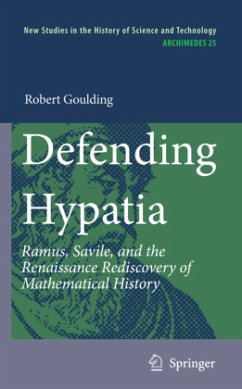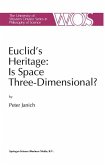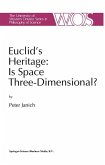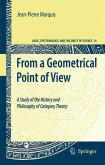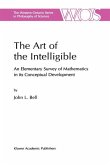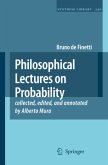Why should mathematics, the purest of sciences, have a history? Medieval mathematicians took little interest in the history of their discipline. Yet in the Renaissance the history of mathematics flourished. This book explores how Renaissance scholars recovered and reconstructed the origins of mathematics by tracing its invention in prehistoric Antiquity, its development by the Greeks, and its transmission to modern Europe via the works of Euclid, Theon and Proclus. The principal architects of this story -- the French philosopher and University of Paris reformer Peter Ramus, and his critic, the young Oxford astronomy lecturer Henry Savile - worked out diametrically opposed models for the development of the mathematical arts, models of historical progress and decline which mirrored each scholar's larger convictions about the nature of mathematical thinking, the purpose of the modern university, and the potential of the human mind. In their hands, the obscure story of mathematical history became a site of contention over some of the most pressing philosophical and pedagogical debates of the sixteenth century.
From the reviews:
"Having read and enjoyed Goulding's book, I realize how much I did not know about the histories of mathematics that were written and argued over in the sixteenth century. ... I recommend this book as an enduring and intriguing contribution to scholarship. Defending Hypatia is an accomplished piece of scholarship which establishes significant conclusions about Renaissance histories of mathematics and, arguably, about the nature of history itself." (Stephen Pumfrey, British Journal for the History of Science, June, 2012)
"Defending Hypatia is a valuable study contributing to our understanding of Renaissance historiography of mathematics ... . Defending Hypatia is well researched and pleasingly written work. It broadens our understanding of Renaissance historiography of mathematics." (Albrecht Heeffer, Aestimatio, Vol. 9, 2012)
"Having read and enjoyed Goulding's book, I realize how much I did not know about the histories of mathematics that were written and argued over in the sixteenth century. ... I recommend this book as an enduring and intriguing contribution to scholarship. Defending Hypatia is an accomplished piece of scholarship which establishes significant conclusions about Renaissance histories of mathematics and, arguably, about the nature of history itself." (Stephen Pumfrey, British Journal for the History of Science, June, 2012)
"Defending Hypatia is a valuable study contributing to our understanding of Renaissance historiography of mathematics ... . Defending Hypatia is well researched and pleasingly written work. It broadens our understanding of Renaissance historiography of mathematics." (Albrecht Heeffer, Aestimatio, Vol. 9, 2012)

